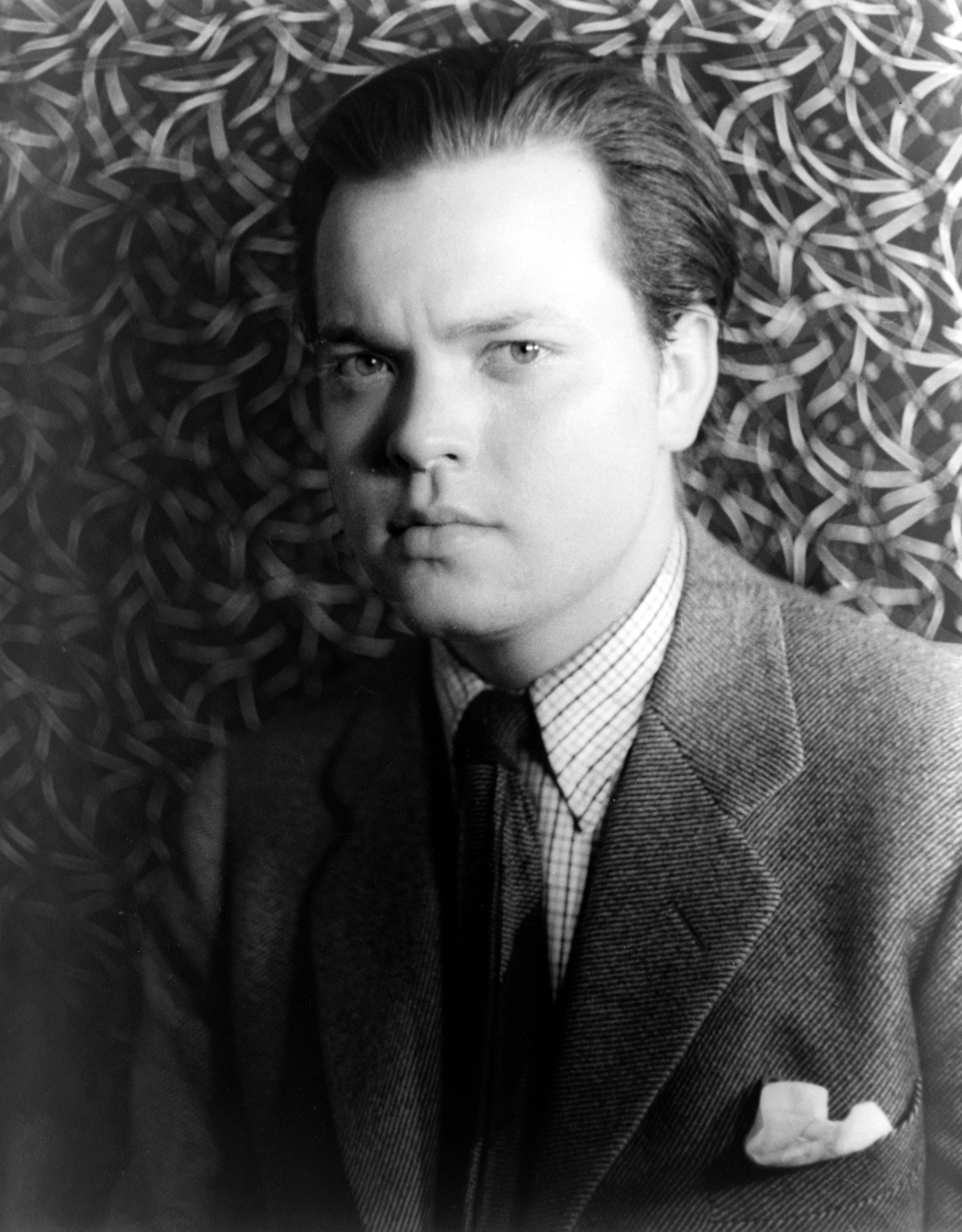A Real 100th Anniversary
Tribute For Citizen Welles
From The Pen Of Bart Webber
Frank Jackman is a funny guy, a funny kind of writer, or as he styles himself “a guy who likes to write” since he considers his real profession to be as the owner of a small tool and die shop in Carver, his hometown although he grew up in North Adamsville up the road about twenty miles toward Boston. Frank though is like lots of writers (I will dispense with the “guy who likes to write” business as he can defend himself on that characterization) in that he likes to, or does may be a better way to put the matter, “crib” from his own work. That may be so although I swear half of writing in any case is cribbing when you are dry for material, when the pen is useless (or the word processor these days) and the other half is recycling the half dozen or so good themes you have developed until you too like the reader want to burn the buggers. But see Frank fancies himself a guy who wants to say something new with each breathe he takes, with each new sketch he produces. Lately though he had “caught” himself out though in recycling a review of the classic black and white film, Citizen Kane, written, directed, produced, and acted in by the legendary movie man Orson Welles as a contribution in honor of his 100th birthday on May 6, 2015.
Frank among his other writing venues has over the past decade or so contributed to two important blogs, important as they feed on his major interests, one the American Film blog, the other The American Folk Music blog. On that May 6th he happened to be driving to Boston meet up with Sam Lowell, Frankie Riley, Jack Callahan and me to have our periodic get together at Jackie Brennan’s Sunshine Grille to talk over drinks and a meal old times in Carver, the crazy and weird things we did in 1960s when we all came of age, and more recently of grandkids, mortality and the increasingly nagging aches and pains we have accumulated over a lifetime of self-indulgence and living lifestyles like we would go on forever, when he heard a segment on the BBC (via National Public Radio, NPR) touting Welles’ 100th birthday with an English commentator who had written something like the definite biography of Brother Orson. Normally that kind of prompt would have had Frank currying for some three or four page sketch giving his take on the subject complete with some poster of one of Welles’ film efforts from Wikipedia and a film trailer via YouTube for the American Film blog. But as he confessed to us in a subsequent meeting the next week he had “mailed it in.” He had taken an adoring review from 2011 of Citizen Kane, grabbed a Wikipedia poster of the film, a YouTube movie trailer from and copied and pasted the BBC interview and called it a day. His excuse-pressing work on a small novella that had been stalling in his brain and which was starting to jell.
As Frank explained it to us he still felt queasy about the matter. After all how much of a sweat does one have to work up (or did he when he first wrote the piece in 2011 as he mentioned) for a film that has been on everybody and their uncle and aunt’s best world films list for decades. That day we also talked over our various takes on other Welles’ works and that nagging feeling we all had that as good as Citizen Kane was some of his other works were also worthy of mention as was his larger than life character and the consensus fact that he never reached his full potential due his own hubris, Hollywood’s own hubris and the alignment of the stars (that last opinion from Frankie Riley, always dependable for such remarks going back down to his days when we first met him at Myles Standish Junior High.
A couple of days after that last conversation I started thinking that Welles’ really should have had a more thoughtful current contribution to his centenary. More thoughtful because he really did loom as a large figure in cinematic history, although his best work of writing, directing, acting and producing for film really had been done before any of us had come appreciate his work, or even had seen any of his films. Most of us, except Frankie who had seen Citizen Kane with his mother at the retro-rerun Strand Theater over in Plymouth when he was young, had only seen his work on television or wherever the Brattle Theater in Harvard Square had one of its periodic revivals of his works. So I decided to write a little sketch to do a certain justice to the man’s work.
Of course it is easy to give all the accolades Kane deserves from the great starting and finishing idea that holds the audience’s attention riveted to solving the mystery of the source of the last utterance of the fading Kane to the meaning of a man’s life, powerful or not, to the editing which gave the film it easy tempo, to the great shadowy black and white photography which had an almost painterly quality in spots, to the seamlessness of the ensemble cast who worked with Welles on that film and earlier and later works, to the acting of the moody, morose, at odds with himself role of Kane Welles played.
The beauty of the story line, the rags to riches to an unquiet deathbed line grasping at some youthful innocence is almost universal. Frankie told us that he had learned this from his Irish mother’s reaction to the film when she told him coming out of the theater that we all have some such ancient thoughts from childhood which we hold onto after all the failures and fissions of teenage and adulthood have faded from view that holds us in their thrall for whatever reason. Frankie mentioned that he still dreamed on nights when he went sleepless or tossed over about a May basket given to him by his third grade teacher, Miss Winot, whom he had a “crush” on if such a thing was possible for somebody so young and he would probably utter her name at his last gasp if he had the consciousness to do so. The rest of us had our jaws open at that and although we all probably later thought some Frankie type thoughts nobody else at that gathering mentioned any childhood bonded associations. Mrs. Riley also had told Frankie that she sympathized with Kane’s attempts to keep his dirty line private, a very Irish take on the man and something we all knew from ancient grandmother wisdom passed down in the old neighborhood in Carver.
But enough of Kane because I want to speak blasphemously here and mention that Welles’ role in Kane was not his best film performance, not by a long shot since, he was really playing a variation on his own self-image, playing to his own youthful vanities and hubris. Where Welles really did some acting was on lesser known films like the role he played as the fall guy Irish Blackie to scheming murderous Rita Hayworth’s in The Lady From Shang-hia, a film that in not talked about much but is underrated in his oeuvre, especially that famous mirror smashing scene at the end. Not enough credit has been given to his masterful white man in black face role in a film adaptation of Shakespeare’s Othello and as the comic/tragic figure of Falstaff in another Shakespeare adaptation. Maybe the best performance he ever gave was as the purely evil but also purely venal and banal small border town police captain in Touch Of Evil. That last role just over a decade or so after Kane has Welles with the jowly look of evil which brought that out the in larger than life character of Welles, this time with what seemed like marbles in his mouth voice better than any other film. Welles had his problems with the studio system of his day, had problems with the cookie-cutter system of keeping everything outside of approved controversy out of films, which meant that for a major director his produced only about a dozen films. But with that small body of work, those seminal roles, that larger than life character, and that unforgettable voice, a voice that stirred millions on the radio in the 1930s in his rendition of H.G. Well’s War Of the Worlds, Welles deserves to be remembered on his 100th birthday. Greetings.














